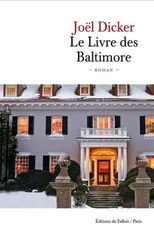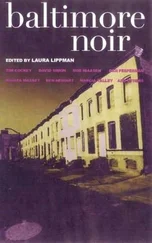Owen Wister - Lady Baltimore
Здесь есть возможность читать онлайн «Owen Wister - Lady Baltimore» весь текст электронной книги совершенно бесплатно (целиком полную версию без сокращений). В некоторых случаях можно слушать аудио, скачать через торрент в формате fb2 и присутствует краткое содержание. Жанр: Вестерн, на английском языке. Описание произведения, (предисловие) а так же отзывы посетителей доступны на портале библиотеки ЛибКат.
- Название:Lady Baltimore
- Автор:
- Жанр:
- Год:неизвестен
- ISBN:нет данных
- Рейтинг книги:5 / 5. Голосов: 1
-
Избранное:Добавить в избранное
- Отзывы:
-
Ваша оценка:
- 100
- 1
- 2
- 3
- 4
- 5
Lady Baltimore: краткое содержание, описание и аннотация
Предлагаем к чтению аннотацию, описание, краткое содержание или предисловие (зависит от того, что написал сам автор книги «Lady Baltimore»). Если вы не нашли необходимую информацию о книге — напишите в комментариях, мы постараемся отыскать её.
Lady Baltimore — читать онлайн бесплатно полную книгу (весь текст) целиком
Ниже представлен текст книги, разбитый по страницам. Система сохранения места последней прочитанной страницы, позволяет с удобством читать онлайн бесплатно книгу «Lady Baltimore», без необходимости каждый раз заново искать на чём Вы остановились. Поставьте закладку, и сможете в любой момент перейти на страницу, на которой закончили чтение.
Интервал:
Закладка:
I paused here in my letter to Aunt Carola, and sought for some fitting expression that should characterize for her with sufficient severity the new type of deliberately worthless negro; and as I sought, my eyes wandered to the garden next door, the garden of the Cornerlys. On a bench near a shady arrangement of vines over bars sat Hortense Rieppe. She was alone, and, from her attitude, seemed to be thinking deeply. The high walls of the garden shut her into a privacy that her position near the shady vines still more increased. It was evident that she had come here for the sake of being alone, and I regretted that she was so turned from me that I could not see her face. But her solitude did not long continue; there came into view a gentleman of would-be venerable appearance, who approached her with a walk carefully constructed for public admiration, and who, upon reaching her, bent over with the same sort of footlight elaboration and gave her a paternal kiss. I did not need to hear her call him father; he was so obviously General Rieppe, the prudent hero of Chattanooga, that words would have been perfectly superfluous in his identification.
I was destined upon another day to hear the tones of his voice, and thereupon may as well state now that they belonged altogether with the rest of him. There is a familiar type of Northern fraud, and a Southern type, equally familiar, but totally different in appearance. The Northern type has the straight, flat, earnest hair, the shaven upper lip, the chin-beard, and the benevolent religious expression. He will be the president of several charities, and the head of one great business. He plays no cards, drinks no wine, and warns young men to beware of temptation. He is as genial as a hair-sofa; and he is seldom found out by the public unless some financial crash in general affairs uncovers his cheating, which lies most often beyond the law's reach; and because he cannot be put in jail, he quite honestly believes heaven is his destination. We see less of him since we have ceased to be a religious country, religion no longer being an essential disguise for him. The Southern type, with his unction and his juleps, is better company, unless he is the hero of too many of his own anecdotes. He is commonly the possessor of a poetic gaze, a mane of silvery hair, and a noble neck. As war days and cotton-factor days recede into a past more and more filmed over with romance, he too grows rare among us, and I regret it, for he was in truth a picturesque figure. General Rieppe was perfect.
At first I was sorry that the distance they were from me rendered hearing what they were saying impossible; very soon, however, the frame of my open window provided me with a living picture which would have been actually spoiled had the human voice disturbed its eloquent pantomime.
General Rieppe's daughter responded to her father's caress but languidly, turning to him her face, with its luminous, stationary beauty. He pointed to the house, and then waved his hand toward the bench where she sat; and she, in response to this, nodded slightly. Upon which the General, after another kiss of histrionic paternity administered to her forehead, left her sitting and proceeded along the garden walk at a stately pace, until I could no longer see him. Hortense, left alone upon the bench, looked down at the folds of her dress, extended a hand and slowly rearranged one of them, and then, with the same hand, felt her hair from front to back. This had scarce been accomplished when the General reappeared, ushering Juno along the walk, and bearing a chair with him. When they turned the corner at the arbor, Hortense rose, and greetings ensued. Few objects could be straighter than was Juno's back; her card-case was in her hand, but her pocket was not quite large enough for the whole of her pride, which stuck out so that it could have been seen from a greater distance than my window. The General would have departed, placing his chair for the visitor, when Hortense waved for him an inviting hand toward the bench beside her; he waved a similarly inviting hand, looking at Juno, who thereupon sat firmly down upon the chair. At this the General hovered heavily, looking at his daughter, who gave him no look in return, as she engaged in conversation with Juno; and presently the General left them. Juno's back and Hortense's front, both entirely motionless as they interviewed each other' presented a stiff appearance, with Juno half turned in her seat and Hortense's glance following her slight movement; the two then rose, as the General came down the walk with two chairs and Mrs. Gregory and Mrs. Weguelin St. Michael. Juno, with a bow to them, approached Hortense by a step or two, a brief touch of their fingers was to be seen, and Juno's departure took place, attended by the heavy hovering of General Rieppe.
"That's why!" I said to myself aloud, suddenly, at my open window. Immediately, however, I added, "but can it be?" And in my mind a whole little edifice of reasons for Hortense's apparent determination to marry John instantly fabricated itself — and then fell down.
Through John she was triumphantly bringing stiff Kings Port to her, was forcing them to accept her. But this was scarce enough temptation for Hortense to marry; she could do very well without Kings Port — indeed, she was not very likely to show herself in it, save to remind them, now and then, that she was there, and that they could not keep her out any more; this might amuse her a little, but the society itself would not amuse her in the least. What place had it for her to smoke her cigarettes in?
Eliza La Heu, then? Spite? The pleasure of taking something that somebody else wanted? The pleasure of spoiling somebody else's pleasure? Or, more accurately, the pleasure of power? Well, yes; that might be it, if Hortense Rieppe were younger in years, and younger, especially, in soul; but her museum was too richly furnished with specimens of the chase, she had collected too many bits and bibelots from life's Hotel Druot and the great bazaar of female competition, to pay so great a price as marriage for merely John; particularly when a lady, even in Newport, can have but one husband at a time in her collection. If she did actually love John, as Beverly Rodgers had reluctantly come to believe, it was most inappropriate in her! Had I followed out the train of reasoning which lay coiled up inside the word inappropriate, I might have reached the solution which eventually Hortense herself gave me, and the jewelled recesses of her nature would have blazed still more brilliantly to my eyes to-day; but in truth, my soul wasn't old enough yet to work Hortense out by itself, unaided!
While Mrs. Gregory and Mrs. Weguelin sat on their chairs, and Hortense sat on her bench, tea was brought and a table laid, behind whose whiteness and silver Hortense began slight offices with cups and sugar tongs. She looked inquiry at her visitors, in answer to which Mrs. Gregory indicated acceptance, and Mrs. Weguelin refusal. The beauty of Hortense's face had strangely increased since the arrival of these two visitors. It shone resplendent behind the silver and the white cloth, and her movement, as she gave the cup to Mrs. Gregory St. Michael, was one of complete grace and admirable propriety. But once she looked away from them in the direction of the path. Her two visitors rose and left her, Mrs. Gregory setting her tea-cup down with a gesture that said she would take no more, and, after their bows of farewell, Hortense sat alone again pulling about the tea things.
I saw that by the table lay a card-case on the ground, evidently dropped by Mrs. Gregory; but Hortense could not see it where she sat. Her quick look along the path heralded more company and the General with more chairs. Young people now began to appear, the various motions of whom were more animated than the approaches and greetings and farewells of their elders; chairs were moved and exchanged, the General was useful in handling cups, and a number of faces unknown to me came and went, some of them elderly ones whom I had seen in church, or passed while walking; the black dresses of age mingled with the brighter colors of youth; and on her bench behind the cups sat Hortense, or rose up at right moments, radiant, restrained and adequate, receiving with deferential attention the remarks of some dark-clothed elder, or, with sufficiently interested countenance, inquiring something from a brighter one of her own generation; but twice I saw her look up the garden path. None of them stayed long, although when they were all gone the shadow of the garden wall had come as far as the arbor; and once again Hortense sat alone behind the table, leaning back with arms folded, and looking straight in front of her. At last she stirred, and rose slowly, and then, with a movement which was the perfection of timidity, began to advance, as John, with his Aunt Eliza, came along the path. To John, Hortense with familiar yet discreet brightness gave a left hand, as she waited for the old lady; and then the old lady went through with it. What that embrace of acknowledgment cost her cannot be measured, and during its process John stood like a sentinel. Possibly this was the price of his forgiveness to his Aunt Eliza.
Читать дальшеИнтервал:
Закладка:
Похожие книги на «Lady Baltimore»
Представляем Вашему вниманию похожие книги на «Lady Baltimore» списком для выбора. Мы отобрали схожую по названию и смыслу литературу в надежде предоставить читателям больше вариантов отыскать новые, интересные, ещё непрочитанные произведения.
Обсуждение, отзывы о книге «Lady Baltimore» и просто собственные мнения читателей. Оставьте ваши комментарии, напишите, что Вы думаете о произведении, его смысле или главных героях. Укажите что конкретно понравилось, а что нет, и почему Вы так считаете.










